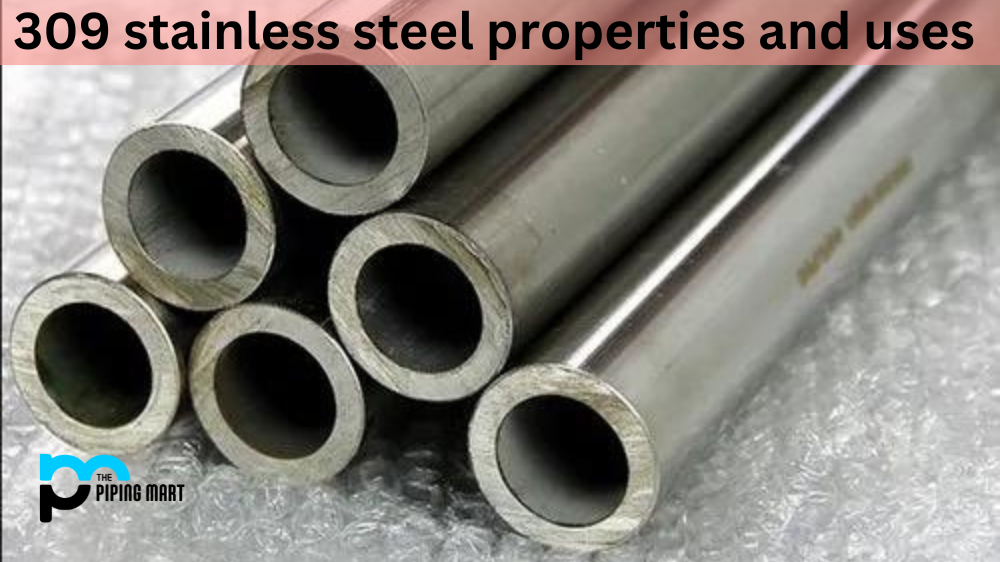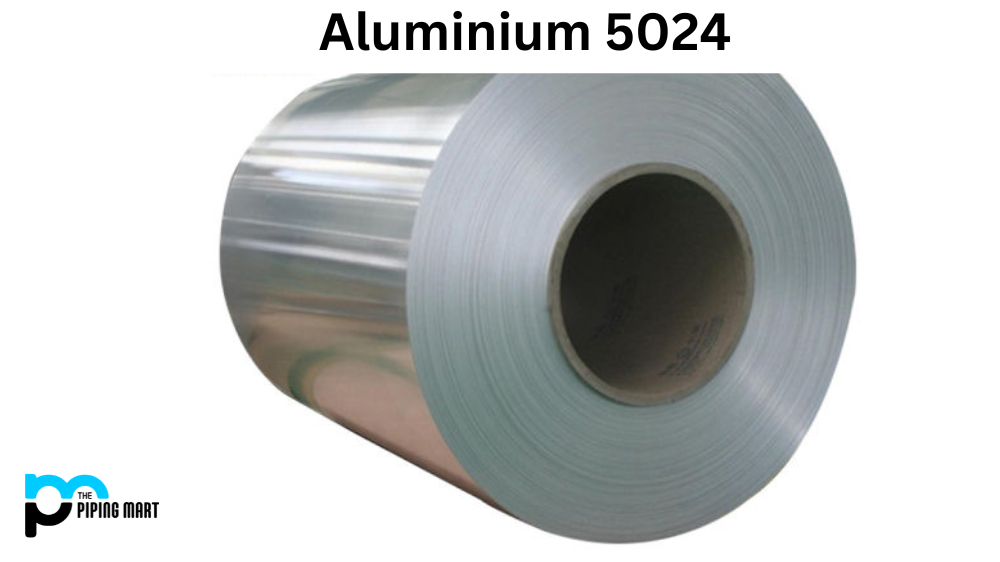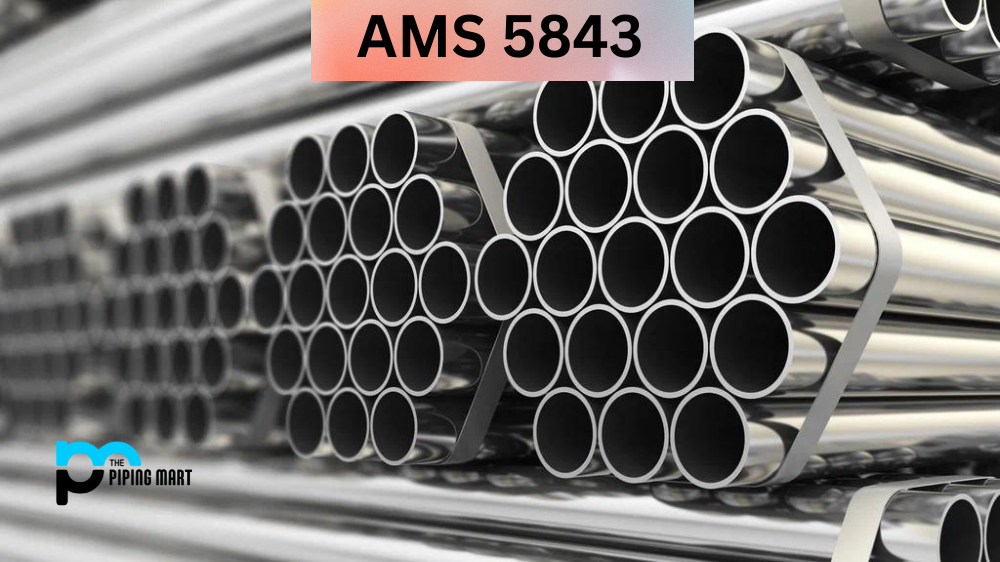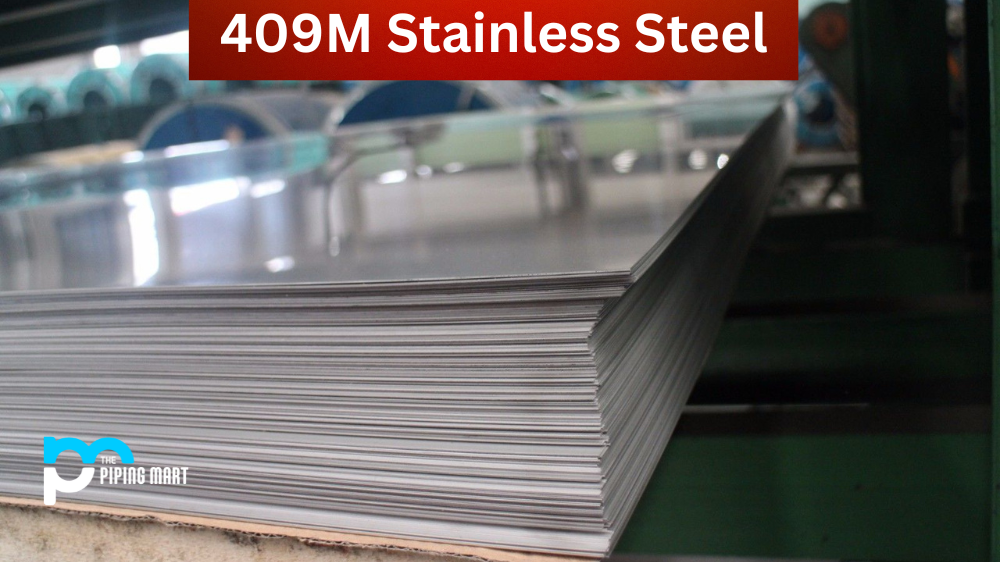SS 309 is a popular material thanks to its durability and corrosion resistance. However, not all stainless steels are created equal—each type has different properties and uses. Today, we’re going to take a look at one of the most versatile types of stainless steel: 309 grade. Read on to learn more about the properties of this innovative alloy and some common applications for it.
What Forms is 309 Stainless Steel Available at Piping Mart?
- 309 Stainless Steel Bolts
- 309 Stainless Steel Nuts
- 309 Stainless Steel Tubing
- 309 Stainless Steel Pipes
- 309 Stainless Steel Plates
- 309 Stainless Steel Channels
- 309 Stainless Steel Valves
- 309 Stainless Steel Bars
309 Stainless Steel Composition
309 stainless steel, is a versatile material ideal for a variety of industrial applications. This iron-nickel austenitic grade features impressive resistance to oxidation, carburization, and sulfur attack. Its composition table consists of percentages of chromium (24-26%), nickel (19-22%), and carbon (.25%). Other elements, such as silicon, manganese, nitrogen, and copper can also be found in small quantities. With its wide range of benefits, 309 is an essential component in the production of sheets and parts.
| Element | Content (%) |
|---|---|
| Iron, Fe | 60 |
| Chromium, Cr | 23 |
| Nickel, Ni | 14 |
| Manganese, Mn | 2 |
| Silicon, Si | 1 |
| Carbon, C | 0.20 |
| Phosphorous, P | 0.045 |
| Sulfur, S | 0.030 |
309 Stainless Steel Physical Properties
UNS S30900 is a highly corrosion-resistant alloy with numerous physical properties to be admired. It is heat-treatable and thus offers ample versatility in fabrication options; this type of steel also performs admirably well in corrosive environments, making it especially useful for marine or industrial applications. Its strength at high temperatures allows it to stay rigid even as its temperature rises and its low electrical conductivity adds another layer of protection when used in dangerous areas. The capability of 309 stainless steel to retain its mechanical characteristics over long periods makes Inconel sheet an attractive option for countless construction projects.
| Properties | Metric | Imperial |
|---|---|---|
| Density | 8 g/cm3 | 0.289 lb/in³ |
| Melting point | 1455°C | 2650°F |
309 Stainless Steel Mechanical Properties
309 SS is widely known for its heat-resistant properties and corrosion resistance, making it a popular alloy for Inconel sheet applications. It has excellent tensile strength, yield strength, and creep strength up to 1200 degrees Fahrenheit, as well as great lateral strength even at elevated temperatures. Additionally, its good formability and weldability make 309 stainless steel ideal for Inconel sheets used in building structures and other commercial equipment. Overall, it is a versatile metal with impressive mechanical properties.
| Properties | Metric | Imperial |
|---|---|---|
| Tensile strength | 620 MPa | 89900 psi |
| Yield strength (@ strain 0.200%) | 310 MPa | 45000 psi |
| Izod impact | 120 – 165 J | 88.5 – 122 ft-lb |
| Shear modulus (typical for steel) | 77 GPa | 11200 ksi |
| Elastic modulus | 200 GPa | 29008 ksi |
| Poisson’s ratio | 0.27-0.30 | 0.27-0.30 |
| Elongation at break (in 50 mm) | 45% | 45% |
| Hardness, Brinell | 147 | 147 |
| Hardness, Rockwell B | 85 | 85 |
| Hardness, Vickers (converted from Rockwell B hardness) | 169 | 169 |
309 Stainless Steel Properties
309 SS is made up primarily of iron and chromium with trace amounts of other elements such as manganese, silicon, phosphorous, sulfur, and carbon. It has a relatively low carbon content compared to other 300 series grades, which makes it ideal for welding applications. Additionally, its high chromium content gives it superior corrosion resistance when compared to other stainless steels – making it perfect for use in corrosive environments like chemical plants or marine settings.
- 309 Stainless Steel is austenitic stainless steel that contains about 22% chromium, 12% nickel, and 2% molybdenum.
- The higher chromium and molybdenum content in 309 provides better corrosion resistance than 304.
- 309 also has a higher temperature resistance than 304, which makes it ideal for use in high-temperature applications.
- 309 is non-magnetic and is not harden able to heat treatment.
- 309 has a good combination of strength and ductility, making it ideal for use in a variety of applications.
309 Stainless Steel Thermal Properties
| Properties | Metric | Imperial |
|---|---|---|
| Thermal expansion co-efficient (@ 0-100°C/32-212°F) | 14.9 µm/m°C | 8.28 µin/in°F |
| Thermal conductivity (@ 0-100°C/32-212°F) | 15.6 W/mK | 108 BTU in/hr.ft².°F |
309 Stainless Steel Equivalent
Other designations equivalent to 309 stainless steel are included in the following table.
| ASTM A167 | ASME SA249 | ASTM A314 | ASTM A580 |
| ASTM A249 | ASME SA312 | ASTM A358 | FED QQ-S-763 |
| ASTM A276 | ASME SA358 | ASTM A403 | FED QQ-S-766 |
| ASTM A473 | ASME SA403 | ASTM A409 | MIL-S-862 |
| ASTM A479 | ASME SA409 | ASTM A511 | SAE J405 (30309) |
| DIN 1.4828 | ASTM A312 | ASTM A554 | SAE 30309 |
309 Stainless Steel Specification
- AISI 309
- ASTM A167
- ASTM A249
- ASTM A276
- ASTM A473
- ASTM A479
- DIN 1.4828
- UNS S30900
309 Stainless Steel Uses
Due to its excellent properties, steel 309 is used in a wide variety of applications across industries. It is commonly found in heat exchangers due to its heat-resistant qualities along with its ability to resist scaling at elevated temperatures. It also finds use in automotive exhaust systems where high temperatures can be an issue. Furthermore, 309 stainless steel sees use in the medical field where corrosion resistance is important when dealing with medical instruments used near human tissue or fluids. Finally, it can also be used in kitchenware due to its low-maintenance nature and easy-cleaning properties.
- 309 stainless steel is often used in high-temperature applications.
- It is frequently used in the food and beverage industry.
- It is also commonly used in the pharmaceutical industry.
- 309 stainless steel can also be found in the petrochemical industry.
- It is sometimes used in the construction industry as well.
Conclusion:
In conclusion, 309-grade stainless steel is an incredibly versatile alloy that can be used in a wide variety of applications across industries, such as automotive exhaust systems, heat exchangers, medical instruments, and kitchenware. Its excellent combination of mechanical strength and corrosion resistance makes it ideal for these uses where reliable performance can be expected even under challenging conditions like extreme temperatures or corrosive environments. If you’re looking for an alloy that offers superior performance without sacrificing quality or cost-effectiveness, then look no further than 309-grade stainless steel!
Meet Heer, a dynamic and driven writer learning tricks of her trade in the metal industry. With a background in Digital Marketing, Heer brings a unique perspective to her writing, sharing valuable insights. Apart from blogging she like reading and hiking.




